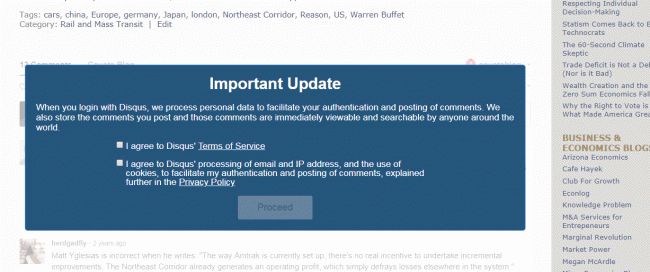Every year, between November and January, tens of thousands of modern nomads descend on the lower Colorado River.Spread out from Yuma to Lake Havasu City, but with their center in the normally small town of Quartzite Arizona, RVers will join together for a month or two in the Arizona desert. Barren fields alont Interstate 10, totally desolate and empty for 9 months of the year, suddenly become a huge encampment.
One of the little talked about trends within the larger story of the aging of America and the growing population of retired people is the substantial number of people who have given up the traditional notion of a fixed home and neighborhood and headed for the open road. While some still own a home, and travel for many months of the year, an increasing number have sold their home, bought an RV, and live on the road -- with absolutely no attachment to any fixed location. They may spend a day or several months in any one location, but most tend to drift north during the summer and back south for the winter. These are not people who take their RV out on vacation -- these are people who live on the road 365 days a year.
For reasons of weather and tradition, while you can find RVers in the summer months in every state, in the winter months a large number will converge on Quartzite. Friendships will be renewed. Business will be transacted. Jobs for the summer months will be solicited. A thousand and one vendors will pitch a tent in the desert to sell their wares. These gatherings remind me of how the old western trading posts may have looked during the winter, surrounded by wintering Indians and trappers. The only difference today is that most of the nomads are Caucasian, and many of the trading posts, in the form of Casinos, are run by the Indians.
Some of these new nomads are able to completely retire and live off their savings. Others need to work to bring in a bit of cash, or at least to pay for a place to park and hook up their RV to utilities. In our business, we hire over 400 of these folks a year, usually working the summer months in exchange for a free site for the RV and some money for relaxing in the winter. RVers are generally comfortable with fairly modest pay, but they won't stand still for very long if they don't like the job or their boss or their co-workers. After all, they all have wheels on their houses and can leave with little notice.
As you might imagine, in this Federalist country we live in where most government services occur at the state level, this nomadic lifestyle can lead to confusion. If you spend the entire year traveling around the country, where is your voting precinct? Where do friends send you mail? How do you get bills? Where is your bank? In which state do you pay taxes? If you think you have trouble getting W-2's out to your employees, trying tracking down 400 nomads with no permanent address!
To a large extent, technology has helped solve a number of these problems over the last decade. Cell phones provide telephone service nearly everywhere in the country. DirecTV does the same for television. With a national ISP like EarthLink or AOL, email doesn't care where you RV is parked "“ it will get to you.
In addition, a whole cottage industry has arisen to serve the needs of full-time RVers. Despite advances in technology, most people still need an address for the mail to go, and the IRS still is kindof fussy about having a mailing address for folks. So, entrepreneurs, mainly in Texas and Florida, have created huge PO box operations to serve RVers, with flexible options for holding or forwarding mail. Full-time RVers, living 365 days in their vehicle, have demanded and gotten larger and more elaborate RV's from manufacturers, up to and including RV's built on bus frames. And, new, more elaborate and upscale RV parks are being built to accommodate the more affluent new RVers.
Other people, including, predictably, the government, have not caught up with this trend. For example, many RVers are living on retirement and social security payments. Most state revenue departments have laws in place that if you are a resident of that state for some number of days, then you have to pay income taxes on earnings, even retirement pay or investment earnings, in proportion to the time spent in the state. These laws are mainly put in place to snare some incremental taxes from wealthy athletes and traveling sales people, but they can can hurt RVers.
An RVer who is totally honest about the states they were a resident in during a year might end up having to fill out five, six, or more state income tax returns. No one wants to do that, especially for small sums, so very very few people observe these tax laws. In fact, that is why PO Box drops are in Texas and Florida, because neither have state income taxes. Their pension and investment and social security checks go to those states, and no one has to be any the wiser about what other states they may have parked their RV in for a while.
There are a number of places to get more information about full-time RVing. Web sites and magazines line the Roaming Times and Trailer Life cater to full-time RVers. Working RVers can find information about work camping jobs and camp hosting as well as the whole workamping lifestyle. Finally, look for good places to camp at goRVing.com, at ReserveUSA, or of course at my company's directory of forest service campgrounds.




